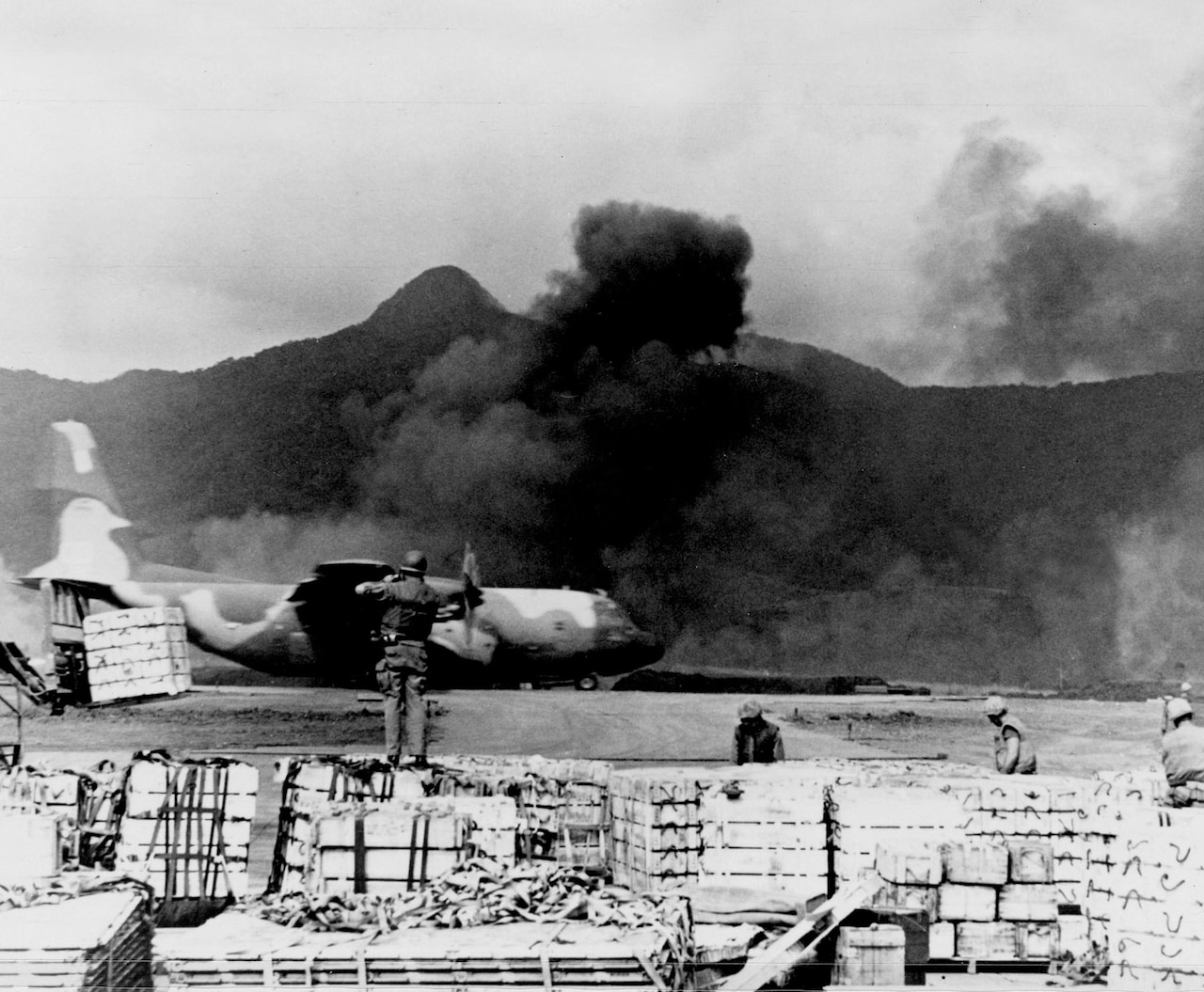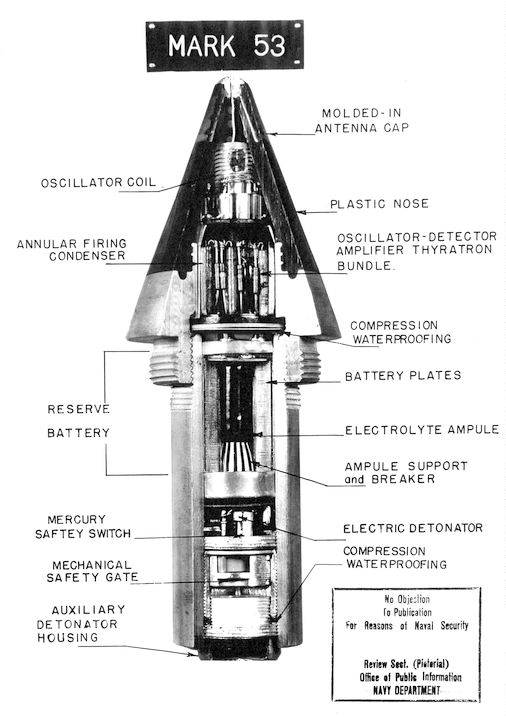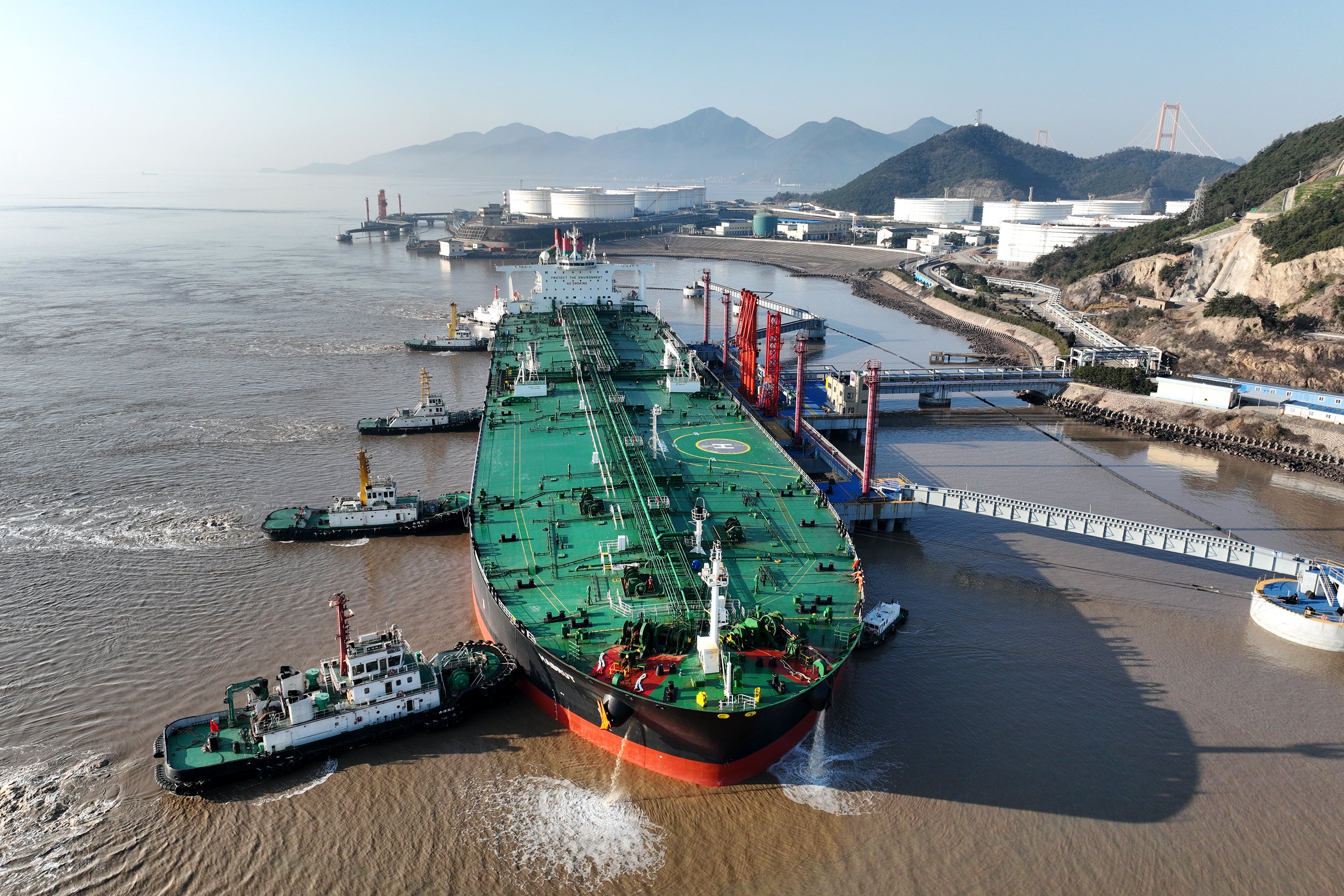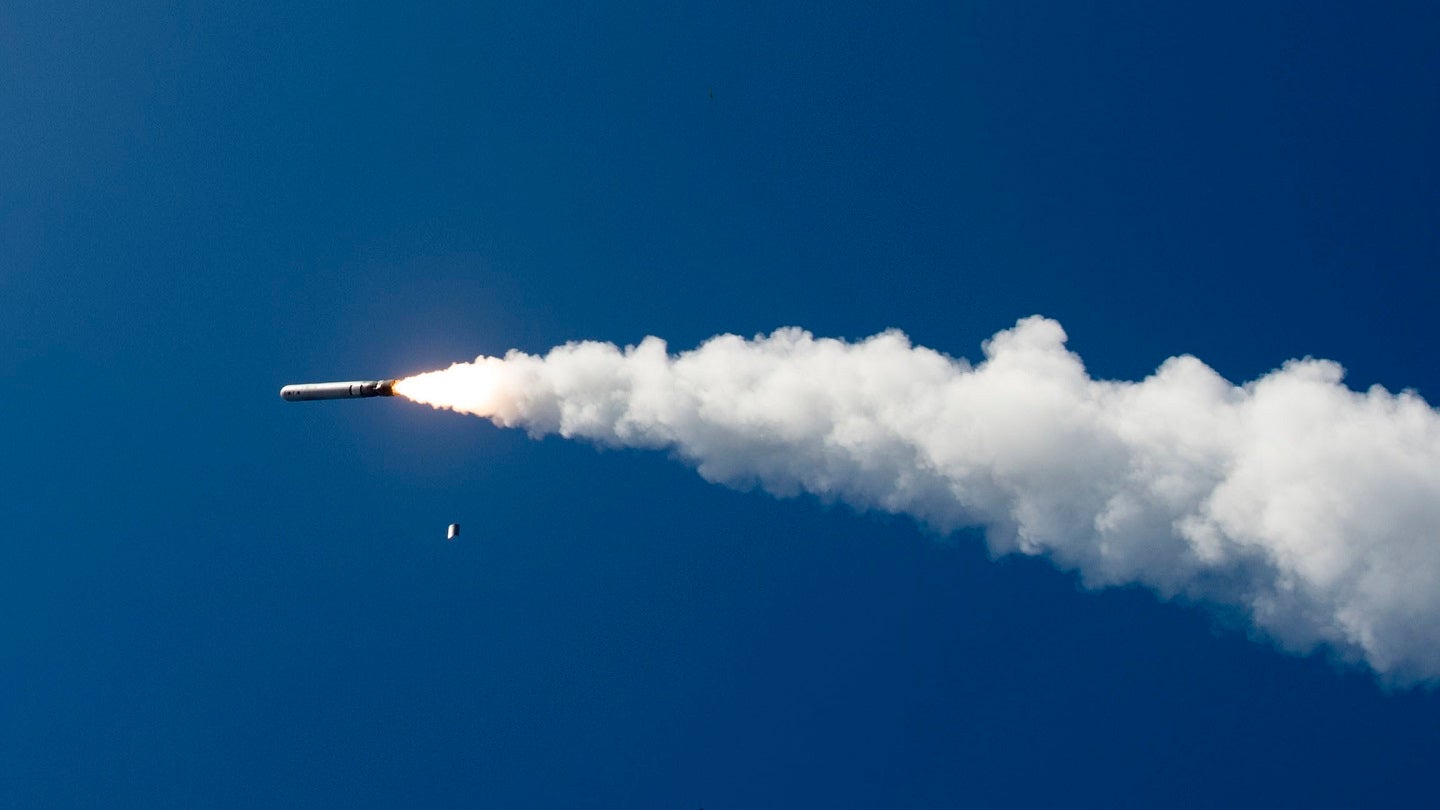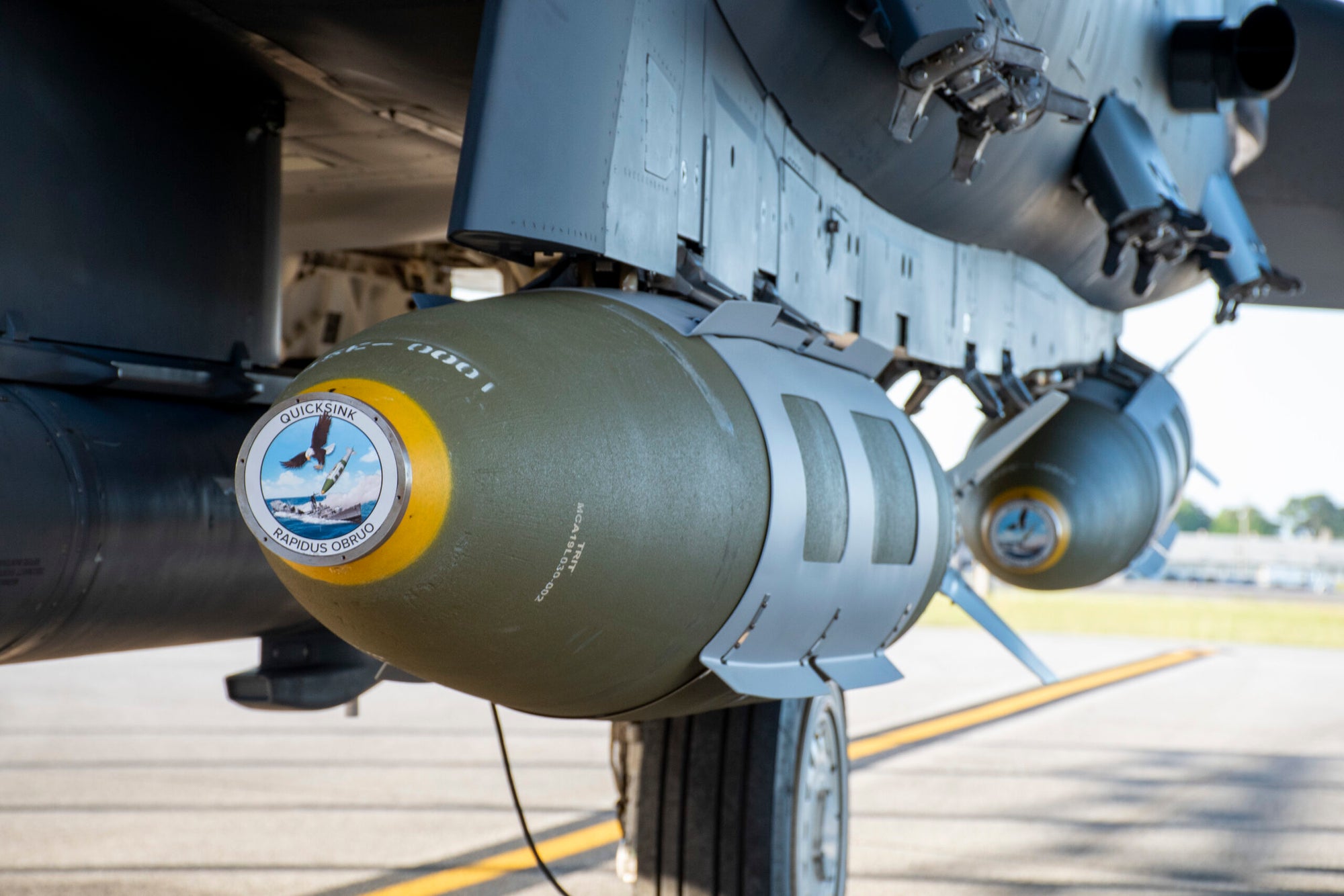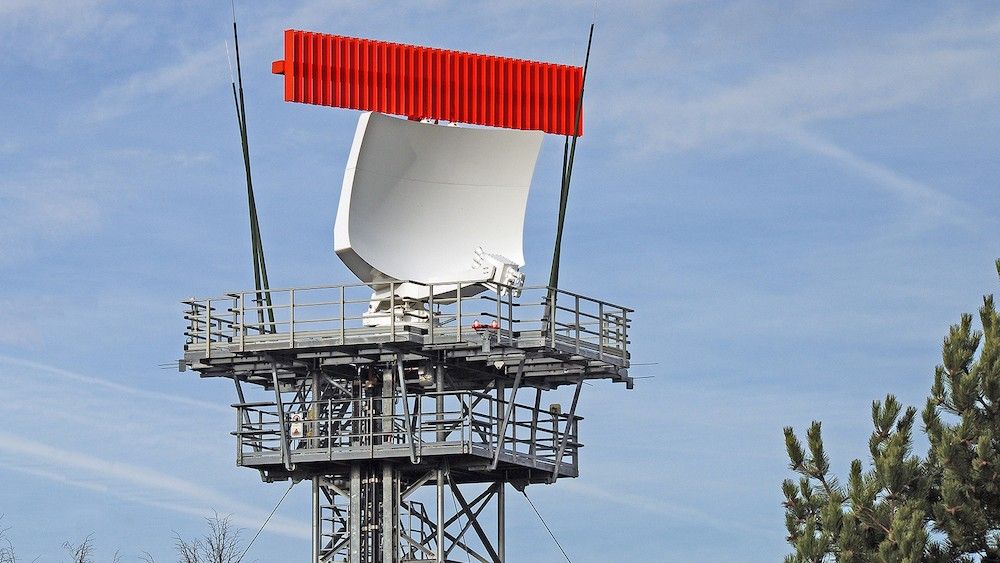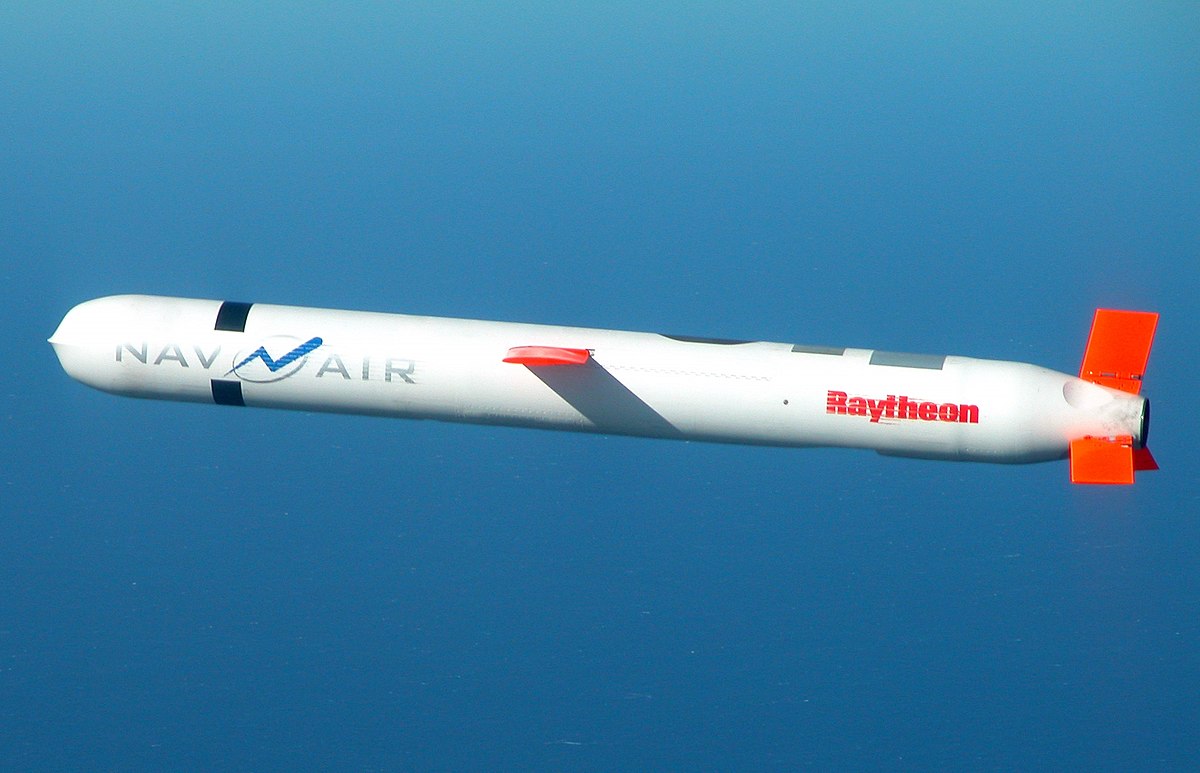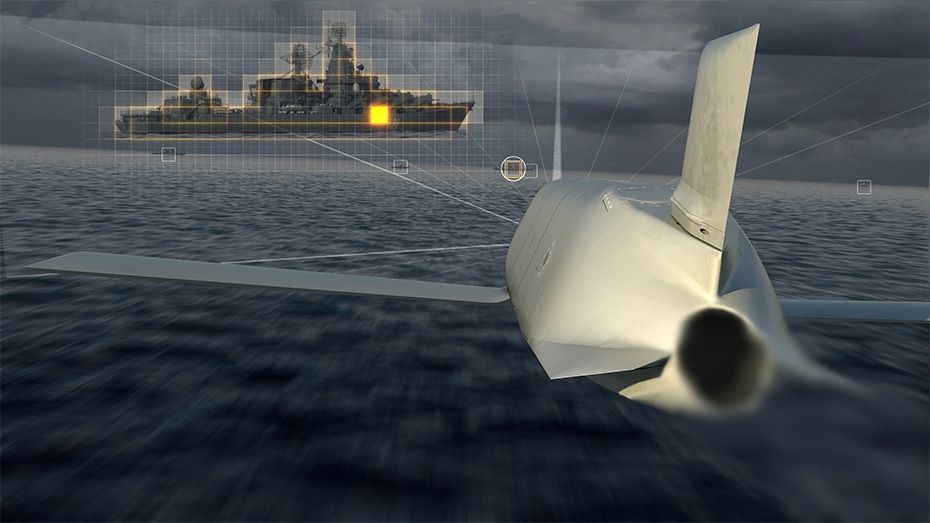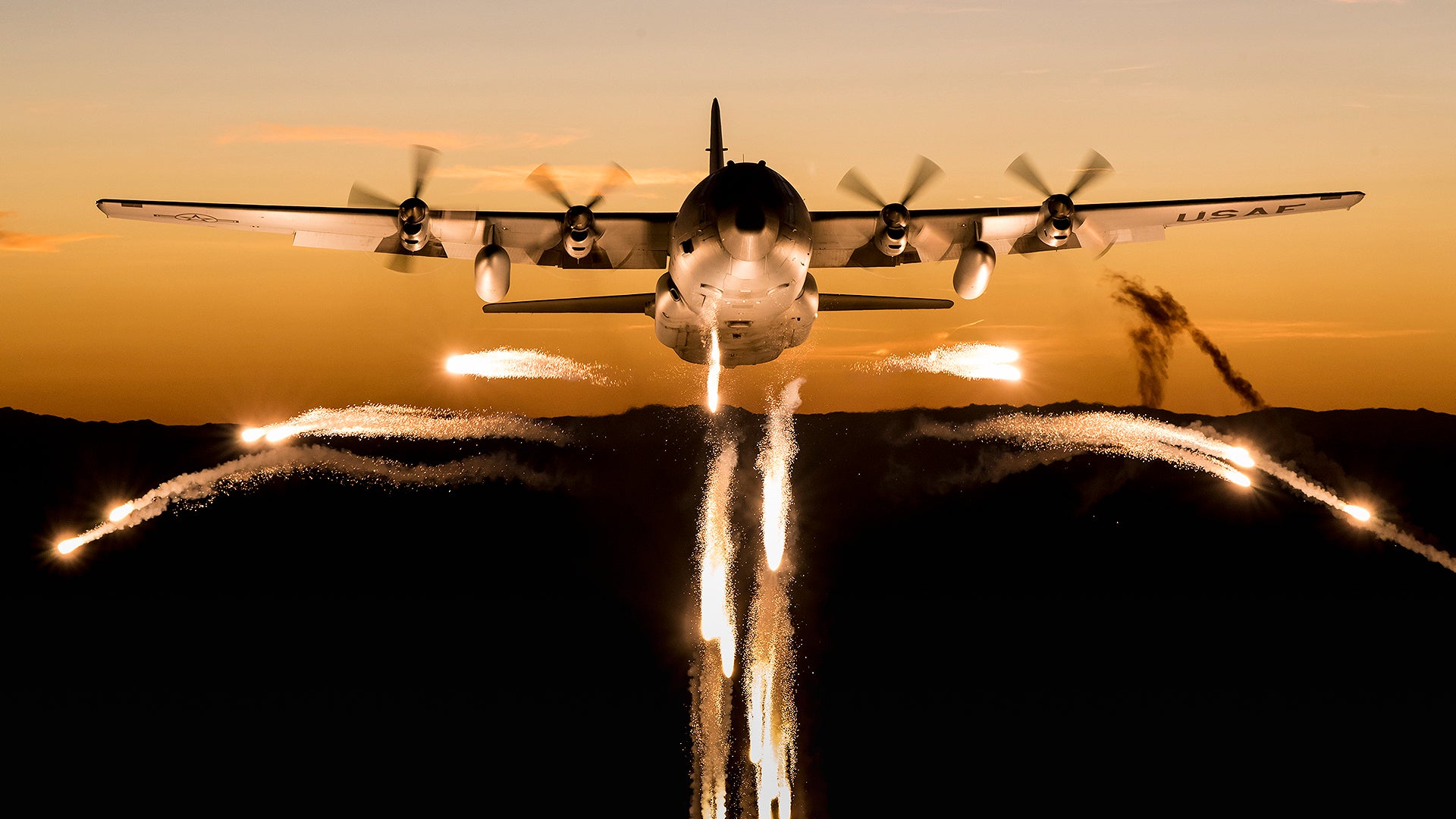The flip side is that even slight variations in the political limits, due to how ridiculously powerful they became in modern West, can mean significant changes in amount of resources thrown at any way.
Eh, I'm less certain not having political limits is going to be the giant power up you assume.
Impossible of course, as these things can't go out to the ocean to fight.
Thus land invasions.
What do you continue to make the exports out of? China, unlike WW2 USA and British Empire, is also a hugely reliant on imports for inputs.
While the inputs go for export goods, the money adds up.
If they shift for war production, those who sell the inputs will say, so how are you going to keep paying us? Sorry, you firing a missile at the Japanese is not valid currency.
Due to sheer quantities of resources needed, the land invasions would have to happen years, if not decades before those routes are needed, otherwise the required infrastructure with the required capacity cannot be built.
If your under blockade. Your not exporting. This seems pretty obvious. Once you loosen the blockade, you just order the occupied people to continue producing what they previously were producing. Or just pay people.
If you put it that way, don't you think Soviets thought that too? You think the Cold War admirals and generals didn't know about Mig-25's?
Targeting an AWACS plane is not nearly as easy as you think.
AWACS typically has fighter escort, hangs out far away, a on account of what it is, has EWAR capabilities way beyond anything else in the air.
Of course the Soviet's thought of that. My dad flew on an AWAC, during the cold war, and asking him he figured the E-2s would have been the first thing shot down. Soviet's apparently had a long range missile specifically designed for that.
To show you the part where it specifically does not account for active defenses, which are a feature of any decent warship now.
Yes, we have more advanced Lancastrian models to actually try and model real outcomes. Salvo model is such a more advanced Lancastrian model.
Such stretching out is not magic, it's called strict rationing. So it would hurt the economy on top of other war effects, that's the point.
Is the expectation that fighting a world war is not going to result in economic pain?
How do you deliver mines to Japanese ports without getting shot at?
How do you make mines stay in one spot for months, despite waves, currents and storms?
The fact is that Russia laid a lot of mines, usually out of range of Ukraine's limited assets, few civilian ships hit them, and they show up in a lot of random places.
China has no means to put meaningful fighting forces in Middle East, in case of naval war against the West, it's downright impossible to supply such.
It would be such a logistical kerfuffle that it would make Hitler's run on Moscow look reasonable.
Logistical routes going through several thousands of kilometers through semi-lawless lands with exceptionally terrible infrastructure in the middle of a world war with its economic effects...
Here are the two obvious land routs:
China -> Russia -> Iran
China -> Pakistan -> Iran
Both of those routs gives you enough transport to supply several hundred thousand troops.
No, capturing means an enemy ship has to get close to the civilian ship's known position, and the operation can take several hours.
The capturing ship is inherently under a massive risk of eating a Harpoon, Maverick, or other missile in a modern conventional war scenario.
Is capturing a fishing vessel worth such a risk to a warship? Hell no.
Either way the ships are worth more economically than they are as fighting force. Korea also has the options of simply sending off its fishermen to safer waters for few years.
So, you don't use a warship. This is what helicopters and light boats are for. Like what Iran just did. Maybe speedboats of seized yatches if you need more hulls. You can then have warships providing overwatch, so when a Blue force makes itself known by shooting on the speedboat you have your warship engage the enemy warship.
Seizing fishing boats and other civilian ships is the job of the naval militia. Warships have more valuable things to do. If the militia effectively works as a meat shield for the navy, even better. Better lose a 1,000 fishing boats than 100 actual warships.
Obviously one that probably is accounted for already, enemy fighters taking long range pot shots at AWACS is a well known problem since the R-33 exists, there's no need to reinvent a 40 year old wheel.
Then why did you acted surprised that AWACs would be shot at, and the need to defend will limit how aggressive the US can be?
Again, if China had the kind of global network of militant sympathizers Soviets had in their heyday, we would be hearing of them. And that's a bare minimum of what would be needed for such operations to work. Antifa clowns are no RAF, and GWOT related security policies made such shenanigans much harder in general.
Also there is an obvious reason you don't hear of carriers berthing in ME even in peacetime.
. . . we do. They're called Chinese people. I was friends with one of them in college. Chinese national, dad designed work camps. And I knew another one in middle school who was quite patriotic. Plus I recall the Confucius centers on the major college campuses I visited when I was in college.
US vs China would not primarily I think be a communism or Capitalism fight, but Chinese nationalism vs American empire. And broadly just those who are Pro America and Anti America. China obviously has a pretty expansive global network of sympathizers, many of which can be used to raise/fund militant sympathizers as useful.
American domestic front is the biggest wildcard here. Middle East is a joke for logistical reasons, Singapore would split China's already stretched naval assets and give them a vulnerable, relatively long logistical route to defend, let's stick to the obvious war theater, Taiwan, Korea and Japan, China's attempts to go beyond would be simply a mistake on their side and will only help lose them the war.
China's bigger problem is making their economy outlast the war.
And the way you help the economy last longer is by expanding the war. You can't argue that holding Singapore makes the War unwinnable for China, and that it wouldn't possibly be worthwhile to conquer it, if that's even necessary. Those are contradictory arguments. Singapore if it needs to be conquered would probably be done so from Land, unless the US naval pretense is just defeated in the South China Sea and the Chinese fleet can just sail in.
These are informed opinions. Many countries, including certain ME ones, went heavily for FAC based navy due to how cheap that is, when were they successful in a war?
As for subs, the US government doesn't think they are great, and with the stories of corruption and general quality coming from China, it's easy to believe. Building good subs requires *extreme* focus on quality in manufacturing of every single component. If things get passed because they are good enough to work, that still doesn't mean they are good enough to work quietly, and in China merely good enough to work quality is something to be appreciated.
Maybe the newest SSNs that are in construction won't be that bad, but we know that the subs that already exist and were spotted on patrol, those aren't very quiet at all, and China's SSN fleet numbers aren't impressive for some reason.
Eh, they have to do something much less extreme than US subs are required to do.
Against an orders of magnitude weaker opponent than US and Japan. One with not a single missile destroyer or submarine, even old one.
If Russia was competent, it may lose some boats and maybe a small warship or two, but no more.
I mean, yes if Russia won the war 2 years ago, they'd have less naval losses. Seeing they haven't won, and have ships in missile and attack range, losing several ships seems quite reasonable, even if they were supremely competent. And Russians are generally middling at best.
30,000 tons out of how many they had in Black Sea in the beginning of the conflict?
We aren't talking of WW2 navy tonnages, Black Sea Fleet is kinda artifically isolated case study due to Montreux convention on account of which Turkey blocks warship movement into the sea during wartime.
Irrelevant to the argument. In fact, as you said above, if they had a bigger fleet, they likely would lose less. Or lose more, because they might have more tonnage in range of land and air based anti ship systems.
What we would actually have to see to get a better idea of how well the Russians are actually doing is to see something like a ratio between attacks and hits.
I meant very different technological environment, you may as well start bringing up world wind maps because those were very relevant for all the history of naval warfare before steam ships lol.
Except there are many similar elements between WWII and today as well. Or even earlier wars. You could likewise say its pointless to bring up morale, because that's an old war consideration. Or overland vs water supply.
Tomahawk production infrastructure is actually quite decent due to their mass use in ME kerfuffles. US Navy fired hundreds of those *in a day* back in Iraq war for example.
Which I believe was several years of production. I believe total lifetime production is under 10,000, and the current stockpile under 5,000.

en.wikipedia.org
If wiki is to be believed, the largest number used in a single operation was the 2003 invasion, which used 800 of them. Other use case we see like Shayrat is 59 Tomahawk missiles used against a single airport. Which China has at l
east a hundred military airports. If each of those took as many Tomahawk's as Shayrat, that's about 6,000 Tomahawks, just to temporarily suppress the Chinese air force. Assuming minimal effectiveness of Chinese countermeasures. There are then several hundred civilian airports that can be impressed into military service.
That seems like a massive application of "China will bomb everyone, but no one is going to bomb China in return" fallacy and implying it's US missile targeting capability that sucks exactly as much as Russian so it's mostly good for wasting missiles on terror bombing cities while Chinese one is good, while if anything that situation is reverse in reality.
China has its industry located near coastal areas, ports are all on coast, airfields that are close to coast are relevant.
You know, all those ships China would need to use to invade any island? USA will blow their firepower on those, their munition cargo to be, and their fuel cargo to be, and the places where those would be stored. Exactly like Ukraine does with Russian supply ships and warehouses in Crimea, except on far larger scale (hello practical experience btw).
I am assuming the US will bomb the Chinese. I don't see how you could have thought otherwise. My argument has been even if the US targeting is perfect, the reserves aren't deep enough to maintain an offensive to the destruction of the Chinese military, and if the US is anything less than perfect and the Chinese at all capable, the initial offensive stalls short of victory and people rebuild and you have the multi year attritional war.
SK alone also has 2,500 km of coastline, for whatever good that is.
I don't see SK jumping to China's rescue as long as NK-China alliance is a thing.
Its not required for SK to jump to China's rescue, just not participate in the blockade. If South Korea doesn't forbid trade with China, and the US/Japan/Taiwan don't intercept shipping headed to South Korea, then every ship that would eventually go to China touches base in S. Korea and pays some fee to have it marked there before pushing on to China.
If they do engage in the blockade, then they're signing up for the War of annihilation the US pushes people to in this theoretical scenario.
Why would Taiwan leave a blockade that was set up for on account of Taiwan being attacked or blockaded by China in the first place?
You are saying in a roundabout way that Taiwan would simply one day decide to surrender.
Any hard actions US takes in that region are for the defense of the SK/Taiwan/Japan, not just some ego stroking project.
I think Taiwan would, given the choice, prefer a limited regional war than a global war, and specifically a war of Annihilation against itself.
Remember that the initial scenario I purposed was China offering a limited war over some particular islands, a repeat of the 1950s straight crisis. The suggested counter was a general blockade, which is a tactic for a war of Annihilation, which is the only situations we've applied it to. Thus, China is told to either lower its head like a beaten dog, or escalate to a global war.
Now, I don't think Taiwan, S. Korea, or Japan would actually want to take on the risks of a general blockade. Taiwan and S. Korea would be marked for death as states in such an unlimited war, and with their demographics what they are, even if the US won the millions of casualties they would take would destroy them.
The only one who would have interest in carrying out such an aggressive strategy would be the United States, dragging its allies along with it.
But, its the scenario people wanted to talk about, so I'm going with the assumption of a US willing to escalate to WWIII, and looking at things from China's side of how to win and maximize the returns to fighting WWIII.
China barely has naval assets to successfully invade Taiwan at best, how the hell are they going to invade far bigger and better armed Japan?
Again, Japan of all countries has an understanding of how untrustworthy China is in deals. Relying on nothing but China's word for safety is suicide.
So China is going to invade SK, fight a naval war against the western coalition, and also launch a logistically breakneck effort to take over ME without naval assets all at the same time, and you think all these 3 fronts will be successes?
Over time, quite possibly. Remember, while your assumption seems to be the US can fight a 6 day war and shock and awe china to give up, I'm assuming that China can't be militarily destroyed in a short period of time, and over time build up.
Lets say China decides to kick off the war in 2025. Maybe after finding the US is willing to go all or nothing after some displays in 2024.
2024 is spent laying the groundwork, sharply increasing military spending and shifting export production to military production, and hording civilian material that is valuable. You implement a draft or otherwise expand the military. Ideally you try to reduce exports to the US to something like zero, while taking out everything of any value in the US you can. China currently has something like 3 trillion in foreign reserves, and at least in 2023 had a $857 billion dollar export surplus.
So, technically China could import $2 trillion dollars more this year, export a trillion dollars less, and making up the difference while only spending down the roughly $1 trillion dollars US dollar assets. Which China would have every reason to get rid of since its value to China is going to approach zero when war with America starts, and if China is really successful with actually generally approach zero if the US global financial system collapses.
So, just in the year leading up to war China can build up nearly a $1 trillion dollars in stockpiles just from spending the entirety of its trade surplus, and increase that to 1-3 trillion dollars liquidating soon to be worthless American assets. Plus you can borrow lot of money from people you have no intention of paying back.
Ideally when war starts military spending as a % of GDP has been pushed up to about 10% as easily converted things are converted and the military increased to about 10 million troops. So, military spending about $2-$3 trillion dollars of military budget at start of the war, plus a $1 trillion dollars of stockpiles. And mid ramp up to total war, assuming the US doesn't just quit.
Now, a 1-3 trillion shopping spree is going to drive up lots of prices, especially if your taking something like $1 trillion dollars of exports off the market as you start domestic stockpiles and switching over to a war economy. But, spiking oil costs as China stockpiles as much as possible is just going to pour billions of dollars into friends like Russia and Iran to help them pay for their own build ups. Its also going to trigger potentially a bit of a shortage in Europe and America as their imports fall and raw materials get taken off the market. But, economic trouble in America is good for China in the lead up, and everything China can buy in America and ship to China is something America isn't going to have when the war starts.
This might make some people rich in the US, but that will just undermine people's willingness to move against china and screw up the good thing they have going, and if the war starts and China has goods and people in the US have paper, which they can't use to buy anything, China comes out ahead there.
Also probably headhunt as aggressively as possible. Your spending trillions of dollars, a $100 billion at say $100k a person can headhunt for the 1 million most valuable people. Targeting primarily Taiwan and S. Korea, though again any productive people you can convince to leave any blue area if they're not likely to be an asset to red where they are is a big hit.
Once the War kicks off, as I said I think S. Korea and Taiwan take 1-3 years to beat. So, taking the 3 year assumption, by that point China is 3-4 years into its mobilization, and is probably at peak military mobilization of about 100 million in uniform and a military budget of something like $10-$20 trillion dollars equivalent. At which point China obviously can build/has built extensive naval landing forces, Japan has been under siege for 3 years, and has probably lost 1-2 million troops.
That would be where Japan is deciding whether or not to stick with the US, or sue for some sort of peace.
There are 7 F-16 using countries in EU now. If every sent mere 8, that would be more than Poland has now. And that's just the F-16's, not all the other jets, nevermind actually you know, doing actually reasonable moves and ordering production of new ones at maximum capacity ASAP, but we have the politicians we have.
Also is the Chinese army going to teleport to Belarus?
Except that... Europe is still not using a lot of its production capacity, and it would take no more than a fraction of existing stock to walk all over Russians with how they are doing in Ukraine. And once that's done, a lot of the kit can be sent. Sometimes a sword hanging over you is worse than a sword that has already struck.
If China is invading Korea and Taiwan, it will support Russia less, not more than now. That is unless China wants to lose on all fronts at the same time.
The fact is, the logistics of sending any major reinforcements to Russia's western border from China are downright nightmarish, and the capacity of existing transport routes, horribly insufficient.
I mean, Russia has trains, and China has 1-2 years to build up forces. Ideally, a war isn't necessary in Europe, but maintaining a plausible threat of War inflicts a lot of virtual attrition. So, on the timeline, as China unwinds exports and ups military production, the treat of US sanctions to support Russia goes down, and more direct support can be supplied.
Chinese commitment would mostly there to provide credible support to Russia, maintain its war with Ukraine through 2024-2025, and when coinvent invade Ukraine through Belarus to wrap that up. Probably a relatively light force overall in 2025. Most of the fight there would be Russia. Major Chinese forces would be 2026-2027 as the Chinese military forces approach their tens of millions and other critical fronts are secured.
Europe, if its committed to the American system, may ramp up production at some point. But, Russia and China would have a lead on mobilization.
So, why would China go out of its way to make it possible for the whole EU's otherwise uninvolved mass of armies help grind their own land forces in a logistically unfavorable setup? Every soldier sent there is a soldier not invading Korea, and several trucks of supplies not getting to the latter.
Will they also send them air support? Will they take away the planes from the Japan front, Taiwan front or Korea front? And they better be good planes, if they sent those reserve old Mig-21 clones, on European front would get treated like training targets by Eurofighters, Rafales and F-35's.
If Russia nukes Europe, Europe nukes Russia. Including its oil industry. China says bye to its fuel support from Russia.
So they're not in the Middle east, and virtual attrition of keeping them in Europe. As I said, ideally war in Europe besides continuing the Ukrainian war wouldn't be necessary. But, if threat of war in Europe can be maintained, the EU's forces are nullified by keeping them in Europe, and lots of virtual attrition is inflicted.
This whole war obviously has the high risk of nuclear war, but if it can be delayed until the civilian economy and population can be hardened and dispersed, the better China can pull through the nuclear war. But, obviously, if Europe is nukes, Blue's economy is dramatically reduced, and thus the amount of oil needed to sustain the war effort is also reduced. Plus securing the middle eastern oil may be easier, as a nuked Europe will be less able to support US operations in the middle east, and Europe generally will have less leverage there.
Well if China wants to waste the troops it needs to invade Korea by having them die due to lack of supplies in Belarus or Middle East, that's definitely going to help the western war effort.
You do realize Russia has had extensive train systems to the middle east and far east for over a 100 years now, right? And belt and road has been a thing for the last 10 years, and it actually has built a lot of infrastructure, right? Are you also aware that Iran and Belarus currently get enough supplies to feed millions of people now? Pakistan in fact are a food exporter?
Iran of course has oil. Iran and Russia in fact do have economies, so they can actually locally provide quite a bit of support. The supply needs of Chinese forces in Europe and the Middle East probably aren't actually that extensive, outside of shells. And for Shells transport ability is pretty substantial.
Those weapons, once released, are controlled by computers, not humans. You need an adequate defensive suite to deal with them, and if those were cheap, everyone would be buying them.
. . . computer controlled doesn't mean cheap options aren't viable. Chaff for example has been one of the most effective anti missiles system at least through the 2000s, and smoke seems to be useful keeping Russian tanks alive when actually used.
Chaff and smoke still are basic equipment that as far as I'm aware everyone buys and uses. The newest tank I'm aware of, the K2 Black Panther from South Korea, still comes with smoke launchers.
Maybe the newest $1 million missile is immune to the countermeasure it took to counter $100,000 laser guided weaponry, but that might mean you need a $1,000 counter compared to a $100 dollar counter.
Yeah, those are abilities of military grade radars, not some 2k USD crappy one, those can't tell speeds of objects so precisely, if at all, especially at distance. For comparisons mortars operate at relatively short ranges, so to spot them small radars with very short wavelengths and conversely good resolution but very short range (aka counter-battery radars) get used.
The Armament Agency had announced a procurement procedure, regarding the acquisition of 15 systems for airfield ATC radars (RKRL systems) in March last year. Up to five bidders were expected to be invited, meeting all of the criteria. The final selection was to indicate the bid that was the best...

defence24.com
That's an example of a civilian version of radar with such abilities.
15 airport radars, about 200m USD.
You are basically trying to magic up a breakthrough technology for China which lets it build second rate military electronics for the price of currently cheapest civilian ones, basically giving them discount Ace Combat manufacturing, through the power of your ignorance of the nitty gritty details of differences between radars of various price points and capabilities.
I just don't find it plausible that its an impossible job, with modern tech, to duplicate the performance of lightweight local WWII radars in an even cheaper and lighter local radar. That would suggest Radar has not followed the path of all other electronics. This would suggest radar would be worse than what we know a camera with now fairly basic image analysis program can do.
Now, you might be right that cheap short range radar might be a very marginal, and the computer revolution is pretty new. Counter battery radars need to do something much more advanced and complicated than what I was suggesting.
You don't get it. Those bombs aren't just effective against unarmed boats. They can take anything other than warships with medium-long range air defense.
Corvette with 9km short range missile and gun based defense, which
China has many of? Also vulnerable.
Any auxiliary, landing or transport warships not escorted by a frigate+ warship? Also vulnerable.
What does it mean? US and allies need expensive high tech weapons only to sink China's first rate AAW surface combatants. There aren't that many and that's not something that can be easily or cheaply improvised. Once those get decimated, China has to either keep most of its Navy and auxiliaries out of operations against Taiwan or Japan, nevermind futher out, because they will be easy pickings otherwise.
So, yeah, that doesn't upset the dynamic too much. I mean, destroyers in WWII were also quite vulnerable even with 5 inch guns to air attack. Lighter craft more so. Ships have generally been quite vulnerable to air power, and the Navy would ideally operate within cover of land air power, and you'd want to convoy a bit.
Naval survival vs military aircraft then continues to be a mixture of protection from friendly aircraft, not being spotted by aircraft, or mass firepower. Which still at this point seems to be anything heavier than corvettes.

en.wikipedia.org

